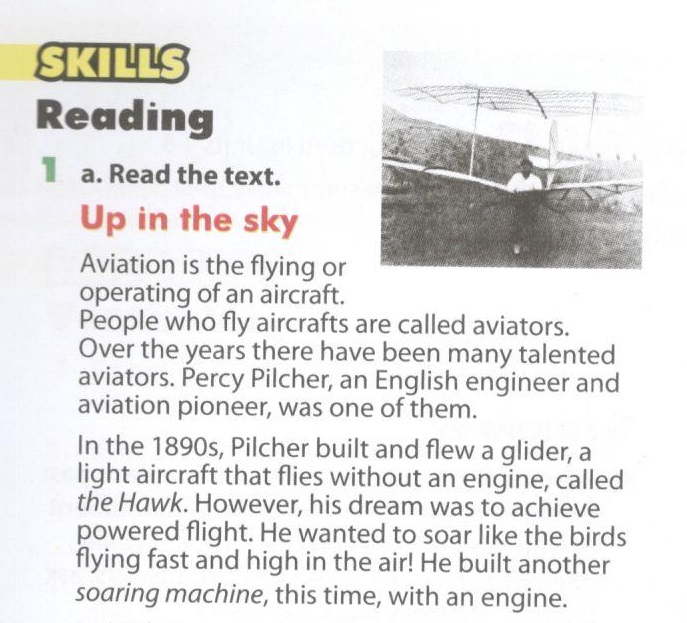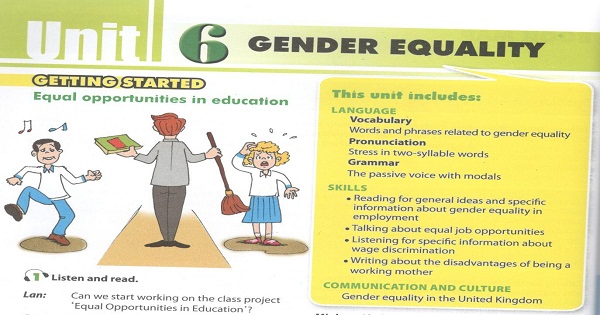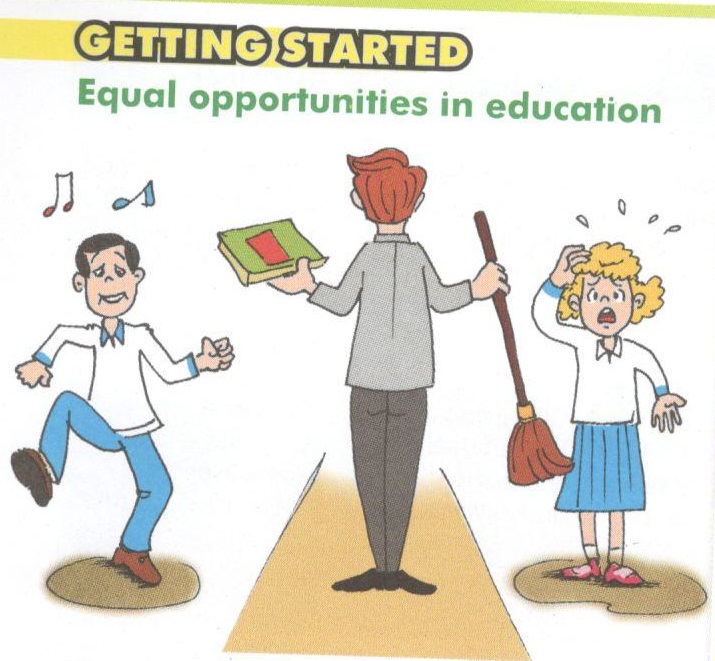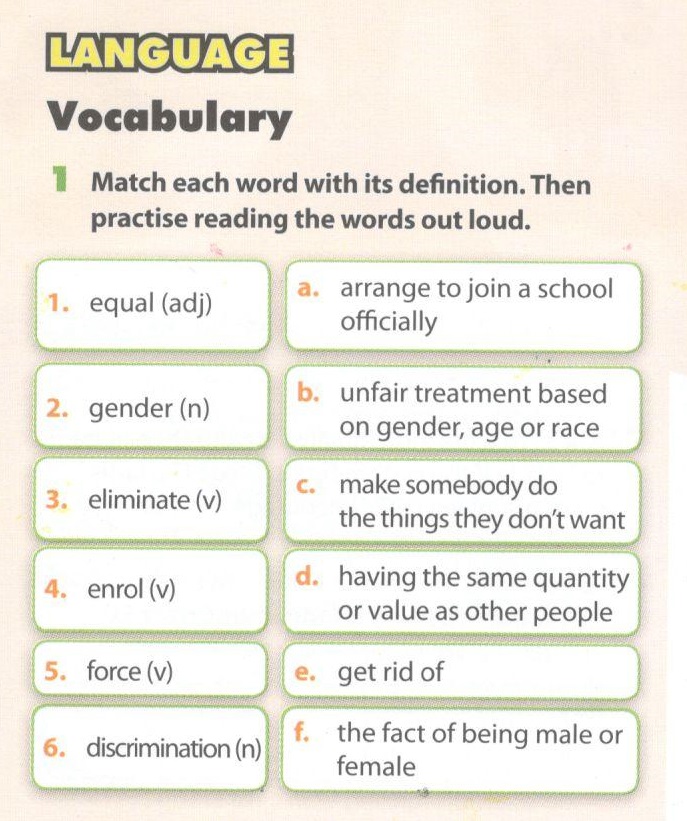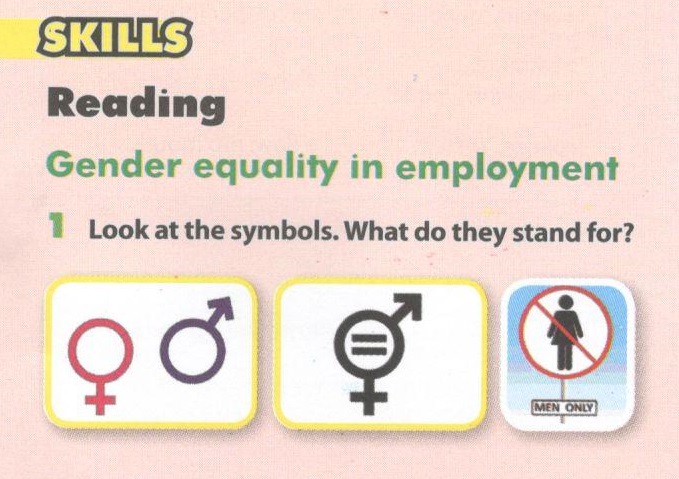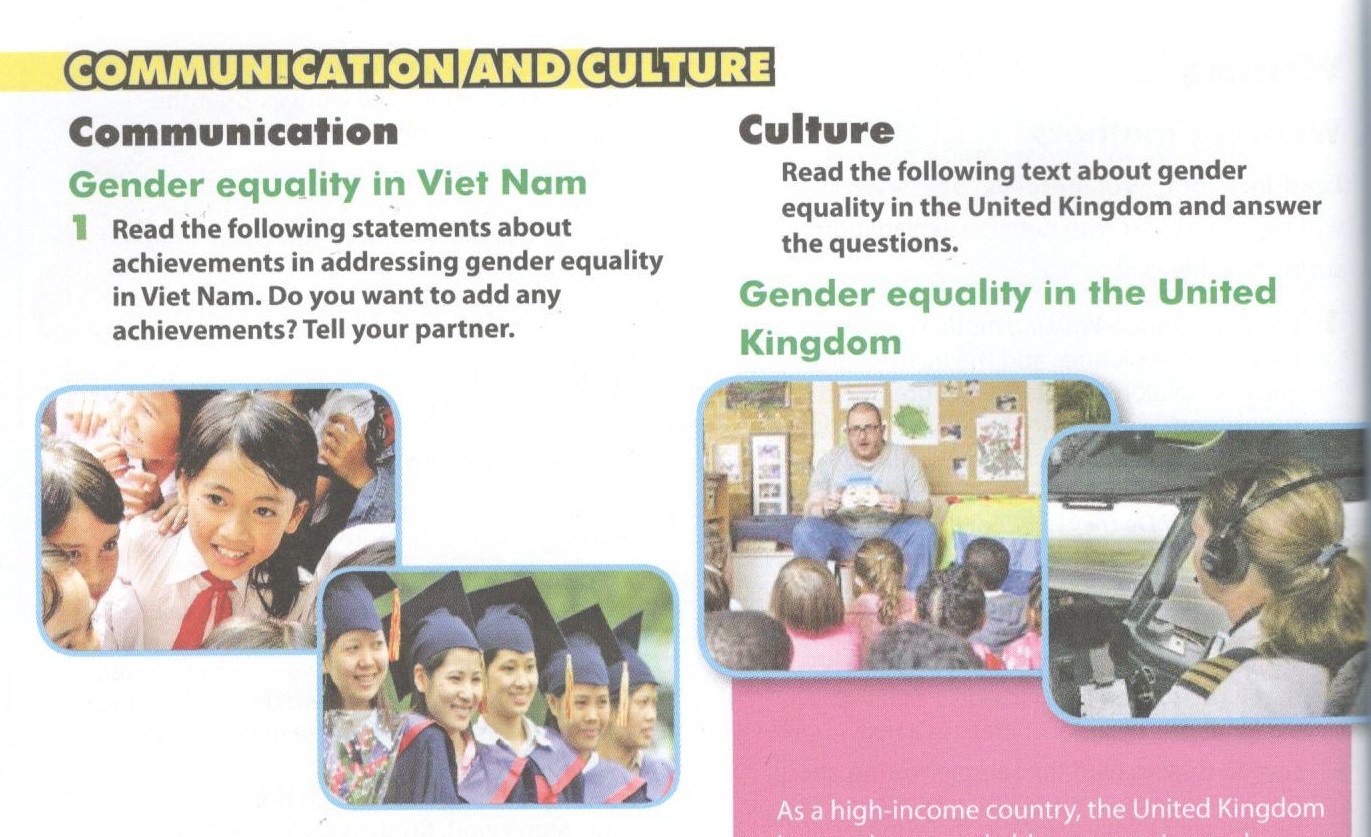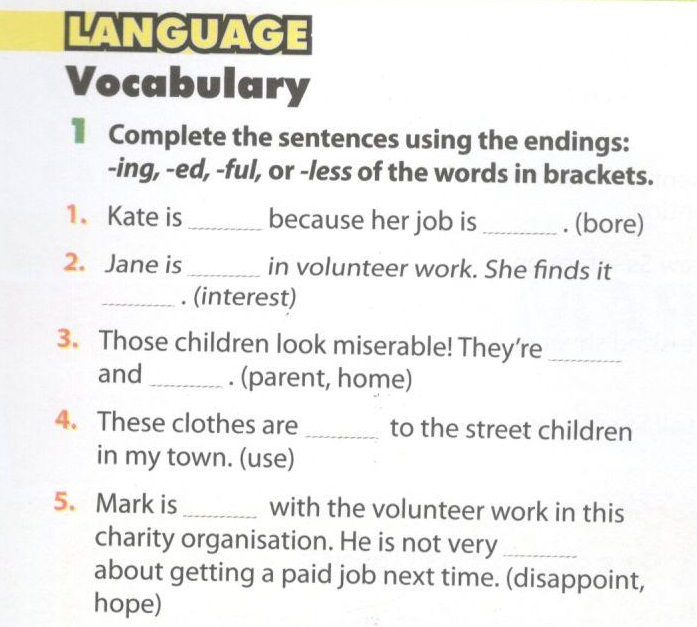
Skills - trang 51 Unit 5 SGK Tiếng Anh 10 mới
Tổng hợp bài tập phần Skills trang 51 Unit 5 SGK Tiếng Anh 10 mới.
- Bài học cùng chủ đề:
- Communication and Culture - trang 55 Unit 5 SGK Tiếng Anh 10 mới
- Looking Back - trang 56 Unit 5 SGK Tiếng Anh 10 mới
- Project - trang 57 Unit 5 SGK Tiếng Anh 10 mới
- Ngữ pháp tiếng anh hay nhất
Reading
Wonderful nature
1. What can the animals or the leaves in the pictures do that people can't? Name some things people have invented to make up for what they cannot do. Discuss your ideas with a partner and then read the text.
Động vật hay loài cây trong ảnh có thể làm gì mà con người không thể làm? Kể tên những điều con người đã phát minh ra để bù đắp lại những điều họ không thể làm. Thảo luận ý kiến của bạn với một người bạn và đọc bài viết.

People often use the natural world as inspiration for their inventions. By observing animals and plants, they design new products to serve humans. Here are some examples.
Animals can do many things humans cannot, like flying or staying underwater for a long time. The aeroplane, with its wings and shape imitating those of a bird, is one of the greatest inventions in our history. Thanks to it, people can travel long distances in the air. This has helped to develop trade and tourism. The submarine, which can travel underwater, imitates a dolphin's shape. Submarines are very useful for scientists to learn about the undersea world.
Plants around us are also great sources of ideas for other wonderful inventions. The self-cleaning glass window and the fabric used to make umbrellas are both inspired by the smooth leaves of a lotus plant, with their ability to wash away dirt in the rain. Another product is Velcro. This hook-and-loop fastener was invented after a Swiss engineer observed how the seeds of a plant clung to his clothing. He then made two fabrics stick together thanks to the hooks on one surface and the loops on the other. Since then, Velcro has gradually become a familiar fastener for shoes, jackets, and even spacesuits.
It is definitely true that nature has inspired numerous inventions and technologies. Scientists and inventors have tried to imitate something in nature in an effort to create better, stronger, safer tools and devices for our everyday life.
Dịch:
Con người thường dùng thế giới tự nhiên như một nguồn cảm hứng cho những phát minh của họ. Bằng cách quan sát động vật và cây cối, con người thiết kế những sản phẩm để phục vụ loài người. Đây là một vài ví dụ.
Động vật có thể làm nhiều điều mà con người không thể làm, như bay hay sống trong nước trong thời gian dài. Máy bay, với cánh và hình dạng mô phỏng của loài chim, là một trong những sáng chế vĩ đại nhất trong lịch sử của chúng ta. Nhờ vào nó, con người có thể những khoảng cách dài bằng được hàng không. Điều này đã giúp phát triển thương mại và du lịch. Tàu ngầm, có thể chạy dưới nước, bắt chước hình dạng của cá heo. Tàu ngầm rất hữu ích cho các nhà khoa học nghiên cứu thế giới đại dương.
Cây cối xung quanh chúng ta cũng là những nguồn ý tưởng dồi dào cho những phát minh tuyệt diệu khác. Cửa sổ kính tự làm sạch và sợi vải được dùng làm ô đều được gợi ý tưởng bằng những chiến lá sen mềm mại, với khả năng làm sạch chất bẩn trong mưa. Một sản phẩm khác là khóa dán. Loại khóa móc và vòng này được phát minh sau khi một kĩ sư người Thụy Sĩ quan sát cách những hạt giống bám chặt vào quần áo ông ấy. Sau đó ông làm 2 mảnh vải dính với nhau nhờ vào những cái móc trên bề mặt mảnh vải này và những cái vòng trên bề mặt mảnh vải kia. Kể từ đó, khóa dán dần trở nên quen thuộc dùng cho giày, áo khoác, thậm chí là đồ du hành vũ trụ.
Chắc chắn rằng thiên nhiên đã khơi nguồn cảm hứng cho rất nhiều sáng chế và công nghệ. Các nhà khoa học và phát minh đã cố để mô phỏng một vài thứ trong thiên nhiên với mong muốn tạo ra những công cụ và thiết bị tốt hơn, chắc chắn hơn và an toàn hơn cho cuộc sống hằng ngày của chúng ta.
2. What is the most suitable title of the text?
a. Mother Nature
b. Imitating Nature
c. Greatest Inventions
KEY b. Imitating Nature (bài viết nói về con người đã bắt chước thiên nhiên để phát minh.)
3. Match the words with their meanings.
Nối các từ với nghĩa của chúng.

KEY
1. b (inspire: tạo cảm hứng)
2. e (fastener: khóa)
3. a (fabric: vải)
4. c (hook: móc)
5. f (loop: vòng)
6. d (spacesuit: đồ du hành vũ trụ)
4. Answer the questions about the text.
1. What are the inventions that imitate animals?
2. What are the inventions that imitate plants?
3. Why is the aeroplane considered one of the greatest inventions in our history?
4. What can help scientists to learn about life under the sea?
5. How can a glass window clean itself?
6. Find the words or phrases in the text that can describe an aeroplane, a submarine, and Velcro.
Dịch:
1. Những phát minh nào bắt chước động vật?
2. Những phát minh nào bắt chước thực vật?
3. Tại sao máy bay được cho là một trong những sáng chế vĩ đại nhất trong lịch sử loài người?
4. Cái gì có thể giúp các nhà khoa học nghiên cứu về thế giới đại dương?
5. Làm sao kính cửa sổ có thể tự làm sạch?
6. Tìm ra từ hoặc cụm từ tron bài viết có thể mổ tả được cái máy bay, tàu ngầm và khóa dán.
KEY
1. The inventions that imitate animals are the aeroplane and the submarine.
2. The inventions that imitate plants are Velcro, the self-cleaning glass window and umbrella fabric.
3. The aeroplane is considered one of the greatest inventions in our history because it helps us to travel long distances in the air and encourages the development of tourism and trading.
4. A submarine can help scientists to learn about life under the sea.
5. The material that makes up the glass window has the ability to wash away the dirt in the rain.
6. An aeroplane: 'its wings and shape imitating those of a bird'
A submarine: 'imitates a dolphin's shape'
The Velcro: 'hook-and-loop fastener';'two fabrics sticking together thanks to the hooks on one surface and the loops on the other'
5. Which of the four inventions mentioned in the text is the best imitation of nature? State your reasons.
Phát minh nào trong 4 phát minh được đề ập trong bài viết là sự mô phỏng hoàn hảo nhất của thiên nhiên. Nêu rõ lí do của bạn.
Speaking
Unique inventions
1. Practise the conversation with a partner.
Tập luyện đoạn đối thoại với một người bạn.
Mai: What's that machine, John? It looks like a printer but a bit bigger and heavier.
John: It's a 3-D printer. I've just bought it.
Mai: 3-D printer? What's it used for?
John: Well... It's used for producing solid objects similar to the originals.
Mai: Really? For example?
John: You can make things like a cup, a spoon, or even a toy car.
Mai: Fantastic. Does that mean I can make my own things at home and savelots of money?
John: That's right.
SUGGESTED ANSWERS
Very special or unusual inventions.
2. Complete the table with the information about the invention mentioned in the conversation above.
Hoàn thành bảng với thông tin về phát minh được nhắc đến ở đoạn đối thoại trên.

KEY

NOTES
A 3-D printer is a machine that can produce three dimensional solid objects. The printing process is similar to the process of making a multi-layer cake: The printer produces layer after layer of the model object until the final product is formed. Some companies are using this printer to produce a prototype of products (e.g. shoes) and make changes before manufacturing the'real'products. The common material used in a 3-D printer is thermoplastic (a kind of flexible plastic that becomes hard when it cools).
3. Discuss two more inventions with a partner. Complete the table below with the phrases in the box.
Thảo luận về 2 phát minh nữa với một người bạn. Hoàn thành bảng sau với những cụm từ trong ô.

KEY
Portable solar charger: not dependent on electricity; environmentally-friendly; easy to carry, not costly
USB stick: not costly; easy to use; easy to transport files
NOTE
Some benefits can be suitable for both inventions: easy to use, easy to carry, not costly
4. Work with a partner. Choose one invention mentioned in 3 and make a similar conversation as in Activity. You can use the information in the table or your own ideas.
Làm việc với một người bạn. Chọn một phát minh được nhắc đến ở bài 3 và làm một đoạn đối thoại tương tự trong phần Hoạt động. Bạn có thể sử dụng thông tin của bảng hoặc ý tưởng của chính mình.
5. Work in groups. Choose one of the inventions below and prepare a talk to introduce it to other group members.
Làm việc theo nhóm. Chọn một trong những phát minh sau và chuẩn bị bài nói để giới thiệu về nó với thành viên các nhóm khác.
- laptop
- e-book reader
- food processor
Listening
Flying cars
1. Look at the picture and discuss with a partner what this flying car (or aerocar) can and cannot do.
Nhìn vào bức tranh và thảo luận với một người bạn xem chiếc xe bay này có thể và không thể làm gì.

2. Listen to an interview with Mr Brown, a spectator at a test flight of a flying car. Tick the words or phrases that you hear.
Lắng nghe buổi phỏng vấn với ông Brown, một khán giả tại buổi bay thử của chiếc xe bay. Đánh dấu vào từ hoặc cụm từ mà bạn nghe được.
Click tại đây để nghe:

AUDIO SCRIPT
Reporter: Excuse me; I'm from the ABC Discovery Channel. May I ask you a few questions?
Mr Brown: Sure.
Reporter: Your name is ....
Mr Brown: Eric Brown.
Reporter: Yes, Mr Brown. Why are you interested in this test flight in New York City?
Mr Brown: Well... I'm a businessman here in this city. You see... there are quite a lot of traffic jams during the rush hours. I guess owning a flying car like this might be a good idea.
Reporter: I see. What do you like about this car?
Mr Brown: It's not... not too big, just a little bit bigger than a normal car. So when its wings collapse, it fits quite well in any garage. Second, it doesn't use too much gas - just five gallons per hour in the air and one gallon per 50 km on the ground.
Reporter: How about its speed?
Mr Brown: It's OK. It can reach 120 km per hour on the ground and nearly 200 in the air.
Reporter: Anything you don't like about it,
Mr Brown?
Mr Brown: Yes. It needs a runway. That's the biggest problem. What happens if it gets stuck in traffic and cannot take off?
Reporter: Yeah... Thank you very much for spending time with us...
KEY
traffic jams; collapse; garage; gallon; runway
3. Listen and answer these questions.
Lắng nghe và trả lời các câu hỏi này.
Click tại đây để nghe:
1. Where is the test flight taking place?
2. What does Mr Brown do?
3. Why is he interested in the test flight?
4. What does Mr Brown like about the flying car?
5. What is the biggest problem with this flying car?
Dịch:
1. Buổi bay thử diễn ra ở đâu?
2. Ông Brown làm nghề gì?
3. Tại sao ông lại quan tâm đến việc thử máy bay?
4. Ông Brown thích gì ở chiếc xe bay?
5. Vấn đề lớn nhất của chiếc xe bay này là gì?
KEY
1. In New York City.
2. He's a businessman.
3. He's considering owning a flying car to deal with the traffic problem.
4. It's not too big, so it can be put in a garage.
5. This flying car cannot take off without a runway.
4. Listen again and complete the information about the flying car. Write one word or number in each gap.
Lắng nghe lại và hoàn thành thông tin về chiếc xe bay. Viết một từ hoặc một số trong mỗi khoảng trống.
Click tại đây để nghe:
1. size: a little bit _______ than a normal car
2. petrol consumption: _______ gallon(s) per hour in the air ________ gallon(s) per 50 km on the ground
3. speed:_______ km per hour in the air _____ km per hour on the ground
KEY
1. bigger
2. 5 (in the air); 1 (on the ground)
3. 200 (in the air); 120 (on the ground)
5. Do you want to own a flying car like Mr Brown? Why or why not? Is there a way to solve the problem with the car that Mr Brown discusses?
Bạn có muốn sở hữu một chiếc xe bay như ông Brown không? Tại sao? Có cách nào giải quyết vấn đề của chiếc xe bay mà ông Brown nói đến không?
Writing
How good is it?
1. Which of these audio devices do you have or want to have? Discuss with a partner.
Thiết bị âm thanh nào bạn sở hữu và muốn sở hữu? Thảo luận với một người bạn.

NOTES
Headphones (B.E.) = earphones (A.E
2. The following text is about earbuds and their three benefits. Below it are the details supporting each benefit. Put the details in the appropriate gaps.
Bài viết dưới đây là về tai nghe nút lỗ và 3 lợi ích của chúng. Bên dưới là những chi tiết làm rõ cho từng ích lợi. Xếp các chi tiết vào các chỗ trống phù hợp.
Most young people have a pair of earbuds with them when they go out. When connected to a portable media player or a mobile phone, earbuds help you listen to music or audio lessons. What are their benefits?
First, a pair of earbuds is small and light, so it is portable.
1. ___________________
Second, earbuds are not costly. They are not as expensive as a set of speakers.
2. ___________________
Finally, you can use earbuds to listen to music or your listening lessons anywhere, even in public places.
3. ___________________

KEY
1. c
2. a
3. b
3. Complete the following outline for the paragraph on earbuds in 2.
Hoàn thành dàn ý dưới đây cho đoạn văn ở bài 2.
a. Topic: The benefits of earbuds
b. Thesis sentence: ________________
c. Supporting idea 1 and further explanantion 'smaill, light, portable => put in a bag or pocket'
Supporting idea 2 and further explanation:
__________________________
Supporting idea 3 and further explanation:
__________________________
KEY
Key
a. Topic: The benefits of earbuds
b. Thesis sentence (Topic sentence): What are its benefits?
c. Supporting idea 1 and further explanation: small, light, portable -» put in a bag or pocket
Supporting idea 2 and further explanation: not costly —> about 100,000 VND
Supporting idea 3 and further explanation: used anywhere -» will not disturb anybody
4. Choose one invention and write a similar paragraph about its benefits.
Chọn một phát minh và viết một đoạn văn tương tự về ích lợi của nó.

dayhoctot.com
- Unit 1: family life
- Unit 2: your body and you
- Unit 3: music
- Review 1: units 1-2-3
- Unit 4: for a better community
- Unit 5: inventions
- Review 2: unit 4-5
- Unit 6: gender equality
- Unit 7: cultural diversity
- Unit 8: new ways to learn
- Review 3: unit 6-7-8
- Unit 9: preserving the environment
- Unit 10: ecotourism
- Review 4: unit 9-10
- Tổng hợp từ vựng lớp 10 (vocabulary) - tất cả các unit sgk tiếng anh 10 thí điểm
